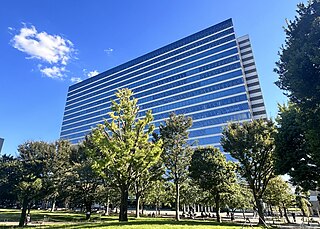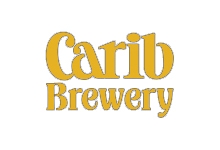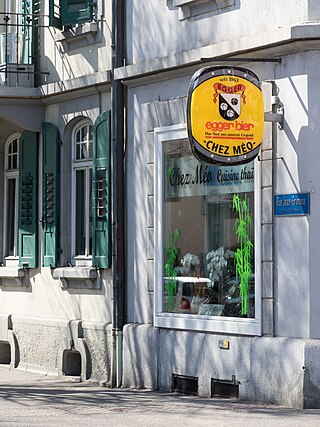
Heineken N.V. is a Dutch multinational brewing company, founded in 1864 by Gerard Adriaan Heineken in Amsterdam. As of 2019, Heineken owns over 165 breweries in more than 70 countries. It produces 348 international, regional, local and speciality beers and ciders and employs approximately 85,000 people.

Grolsch Brewery , known simply as Grolsch, is a Dutch brewery founded in 1615 by Willem Neerfeldt in Groenlo. In 1895 the de Groen family bought the brewery. They had started their own brewery in Enschede in the early 19th century. It held a significant stake until November 2007. Today the main brewery is located in Enschede.

SABMiller plc was a South African multinational brewing and beverage company headquartered in Woking, England on the outskirts of London until 10 October 2016 when it was acquired by AB InBev. It was the world's second-largest brewer measured by revenues and was also a major bottler of Coca-Cola. Its brands included Foster's, Miller, and Pilsner Urquell. It operated in 80 countries worldwide and in 2009 sold around 21 billion litres of beverages. Since 10 October 2016, SABMiller is a business division of AB InBev, a Belgian multinational corporation with headquarters in Leuven.

Nigerian Breweries Plc, is the largest brewing company in Nigeria. It serves the Nigerian market and West Africa.

The Kirin Holdings Company, Limited. (キリンホールディングス株式会社) is a Japanese beer and beverage holding company. It is known for brands such as Kirin Beer, Kirin Lemon, Mets, and Gogo no Kōcha.

Anadolu Efes Biracılık ve Malt Sanayii A.Ş. produces and markets beer and malt and non-alcoholic beverages in a wide geographical area comprising Turkey, Russia, the Commonwealth of Independent States (CIS), Europe, Central Asia and the Middle East. Anadolu Efes is a member of the Anadolu Group. Anadolu Group was founded in 1950 by the Özilhan and Yazıcı families. Exhibiting a rapid and sustainable growth since its inception, the Anadolu Group transformed into a holding company in 1969.

The Carib Brewery Limited is headquartered in Trinidad and Tobago. It produces Carib and Stag beers and a range of shandy products. The main brewery is located in Champs Fleurs, Trinidad, while Carib also has breweries in Saint Kitts and Nevis and Grenada, as well as a United States affiliate brewery in Cape Canaveral, Florida.

De Koningshoeven Brewery (Brouwerij de Koningshoeven) is a Dutch Trappist brewery founded in 1884 within the walls of Koningshoeven Abbey in Berkel-Enschot (near Tilburg).
Beer in Africa, especially lager, is produced commercially in most African countries, and indigenous people also make varieties of beer. Beer is served in various locales, from neighbourhood shebeens to upscale bars. Many countries have standardized beer bottle sizes, which are cleaned and re-used, so when buying beer at a store, people often must pay a deposit on the bottle and the price of the beer. An alternative to glass-bottle beers is local beer sold in tetra-pak style paper cartons.

Brewing in Ireland has a long history. Production currently stands at over 8 million hectolitres, and approximately half the alcohol consumed is beer.

Beer in the Netherlands mostly comprises pale lagers like Heineken and Grolsch. Heineken is the world's second-largest brewer.

Meantime Brewing Company is a brewery based in Greenwich, London, England, and owned by Japan's Asahi Breweries.
Heineken N.V. is a Dutch brewer which owns a worldwide portfolio of over 170 beer brands, mainly pale lager, though some other beer styles are produced. The two largest brands are Heineken and Tecate; though the portfolio includes Amstel, Fosters, Sagres, Cruzcampo, Skopsko, Affligem, Żywiec, Starobrno, Zagorka, Zlatý Bažant, Laško and Birra Moretti.

Hengelosche Brewery was a brewery in Hengelo at the heart of the Twente region in the Netherlands. It brewed Hengelo Bier which disappeared in 1988 after its owner Stella Artois lost a major supermarket contract and decided to promote Dommelsch as their brand for the Dutch market.
InBev was a brewing company that resulted from the merger between Belgium-based company Interbrew and Brazilian brewer AmBev which took place in 2004. It existed independently until the acquisition of Anheuser-Busch in 2008, which formed Anheuser-Busch InBev. InBev had operations in over 30 countries and sales in over 130 countries. In 2006, it had a market capitalization of €30.6 billion and net profit of €3.2 billion on sales of €13.3 billion.
Heineken Malaysia Berhad is a major producer of beer, stout, cider and non-alcoholic malt beverages in Malaysia and has been listed on the Main Board of Bursa Malaysia since 1965. Among the brands they produce and market are Heineken, Tiger Beer, Tiger Crystal, Guinness, Strongbow Apple Ciders, Apple Fox Cider, Anchor Smooth, Kilkenny, Anglia, and Malta. The company also imports and distributes Heineken 0.0, Paulaner and Kirin Ichiban.

Camerons Brewery is an English brewery established by John William Cameron in Stranton, Hartlepool, County Durham, in 1865. It is the largest independent brewer in the North East of England, with a brewery capacity of 1.5 million hectolitres and a tied estate of 75 houses. It is one of the oldest industrial concerns in Hartlepool, and has historically been one of the largest employers.
J.F. (Johannes) Swinkels (1851–1950) was an important person of the Dutch brewing industry. He was the fourth generation of Swinkels family running a brewery in the Dutch village of Lieshout, North Brabant. When he took over the brewery in 1884 he started its transformation from a local brewery into a worldwide but still family owned company with annual production of five hundred million litres of beer. Nowadays Bavaria is the second largest brewery in the Netherlands and Johannes is considered to be the founding father of its present-day success. Johannes was actually the first brewer in Lieshout who fully focused on the brewing business only when his ancestors always split their professional capacities in between brewery and agriculture given the favourable location of Lieshout surroundings.

Switzerland has a long tradition of brewing, with significant domestic beer production and a growing craft brewing sector.


















